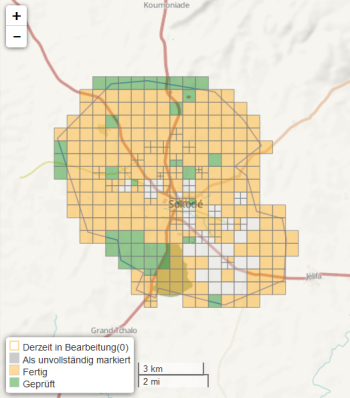Dear Mapping-Enthusiasts,
before the start of the semester break, we would like to take the chance to round the semester up with a “SPECIAL” Mapping event.
Many of you have supported the Mapping for Togo during our last Mapathon or/ and the GIS tutorial. This data was collected for the use by the local authorities in Sokode.
In this event you can learn more about the use of this data and the further OpenStreetMap activities in Togo. Kerstin Meyer of the TU Kaiserslautern will be joining us to present her work regarding the use of OpenSource Geospatial Technology in Togo with focus on OSM. She was working with the local authorities in Togo, organized mapathons and mapping trainings and was moreover out in the field to validate and add information to the data we and other mappers provided.
WHEN: Tuesday, 6 pm
WHERE: Hörsaal, Berliner Straße 48
Kerstin will open up the event with a presentation, then we will have the rest of the evening to discuss, map and to also test the new MapSwipe App- an app we developed in cooperation with MissingMaps and which is now available in the Play and App Store! For more information also see: http://mapswipe.org/
We are looking forward to seeing you all on tuesday,
the disastermappers
P.S. Please bring your own laptop and mouse (for the mapping) and a smartphone and tablet (for MapSwipe) if available 🙂



